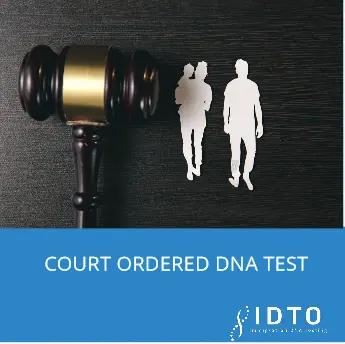Establishing the paternity of a child for unmarried parents is the most important step taken to ensure a child receives the legal and financial support they need. When a couples disagree on the paternity of the child oftentimes performing a DNA test to settle the issue may difficult perform.
In this article we discuss what to expect when a father or mother refuses to participate in the DNA testing process.
Can You Refuse A DNA Test?
Yes. A mother or an alleged father can refuse to participate in a DNA paternity test. Remember, DNA Testing is voluntary but depending on the circumstance there can be a consequence for the party that refuses if a court order has been issued.
How to get a Paternity Test when the father refuses?
There are a couple ways to establish the paternity of a child when a father refuses to participate in a DNA Test.
1. If the mother of the child’s objective is to acquire child support for her child than filing a paternity petition with family court in your state is the best option. Once the petition is accepted a court order to appear in court will sent the alleged father to appear.
The alleged father showing up in court will be at his own discretion. If he does not, the judge will rule in favor of the mother and the will be held in contempt.
2. Another way paternity can be established is testing one or both of the parents of the alleged biological father. This testing option is called a Grandparent DNA Test.
This testing option can be used if the alleged father refuses to participate in a DNA test but the results cannot used to submit in court as evidence to add the alleged father’s name unto the child’s birth certificate.
Testing a one or both of the alleged father’s parents is an effective secondary option because the alleged father’s parents contributed DNA to their son. By testing the grandparents could help determine if the alleged father is the biological father of the child
The only time a a grandparent DNA test can be to add a father’s name on to a birth certificate is if the alleged father is deceased.
Please note, only legal DNA testing perform by an AABB Accredited laboratory will be recognized by a family court judge if you are attempting seek child support and to add the father’s name to the birth certificate.
It is recommended that you speak with a family law attorney about paternity establishment guidelines within your state before performing a paternity test.
What to do if the mother refuses a DNA Test?
Similar to the options for a mother. An alleged father can use the following option. A man who believes himself to be the biological father of a child can file a paternity petition with family court.
It is important to keep in mind that this option will work only if the man who filed the petition is accepted by the court. If this is not the case, a paternity test will be performed if the mother or legal guardian agrees to testing.
Refusing a paternity test court order
When a judge requests all parties to perform a paternity test and the mother refuses to agree with the judge’s order. The may be held in-contempt of court. Oftentimes mothers do not face the same consequences of not following the judge’s order to perform a DNA test. To learn more about court order DNA testing here.
If you are in this current circumstance please contact a family law attorney to explore all of your options in your state.
Conclusion
A DNA test can be performed if an alleged father refuses to participate but depending on the circumstance there could be consequences for the alleged father if he choosing not to participate in a legal paternity test.
If you require legal paternity testing services recognized by family court. Call IDTO DNA Testing Center at 877-680-5800 to ask a question or to schedule an appointment.


